To take stock of the achievements made and set priorities and in different horticultural crops and to identify opportunities for with the evolution of the New Age technologies like Artificial Intelligence, Machine Learning, Big Data, Genome editing to facilitate sustainable horticultural production and designing resilient crop varieties and to explore the potential of N-E India, as a growth engine horticultural production.
Ⅰ. Elite Germplasm and Variety Development: Conservation and use of horticultural crop diversity; Mainstreaming biodiversity; Pre-breeding, Wild species for broadening genetic base of important crops; Development of trait specific genotypes, cores and minicores, Genetics and inheritance of economically important traits; Traditional breeding approaches and achievements; Mutation.
Ⅱ. Genomics in Trait Specific Breeding: Haploids and polyploidy; In vitro techniques; Advances in Genome Sequencing; Strategies for reducing the breeding cycle; Molecular Markers, QTL mapping and NGS based strategies; Data driven hybridization; gene pyramiding; Trait discovery; Trait enhancement through genome editing; Genomic selection; High throughput phenotyping; Off-season nursery; Breeding varieties suitable for organic farming.
Ⅲ. Artificial intelligence in Horticulture: Use of Drones, GIS, Robotics, Data driven understanding of dynamic conditions of the crop, soil and climate; Digital Horticulture; Application of artificial intelligence (AI) and machine learning; Use of ML algorithms in Big Data; Scope of Big Data and ML for agriculture; Adaptations to ML for using it with Big Data; Identifying challenges, adaptations and the design of architectures; Efficient input management; Advances in mechanization and automation;; Information visualization systems
Ⅳ. Strategies for Development of Minor Commercial Crops: Production systems, protection and improvement in selected focused crops: Mushroom; Oilpalm; Dragon fruit; Kiwi; Passion fruits; Jamun; Bael; Mangosteen; Cactus; Rambutan; Seabuckthorn; Potential of berries in India; Pickling cucumbers; Exotic leafy and salad crops
Ⅴ. Recent Developments in Production of Seeds and Planting Materials: Innovations in Production of planting materials; Seeds and planting material of horticultural crops; Propagation methods for quality planting materials; Advances in grafting and rootstock; Rootstock and abiotic effects on plant growth; Rootstocks in specific fruits and vegetable crops; Cuttings, layering, division, budding and grafting; Synthetic seeds; Virus free plantlets; In vitro and In vivo propagation; Requirements for quality seed production; Hybrid seed production; Genetic fidelity and purity test; Long term and Medium term Seed storage; Cryopreservation
Ⅵ. Innovation for Sustainable Horticultural Production: Opportunities to enhance circular bioeconomy; Horticulture based farming systems; Principles and practices of Zero budget Natural Farming; Principles and practices of organic farming; Components of natural and organic farming; Important source of nutrients and effective crop protection; Use of traditional knowledge and wisdom; Analysis of important quality attributes of organically grown produce; Quality attributes of the natural farming-based produce; Protection and sustainable utilization of pollinators; HDP for improving income; Promoting inter culture system; Conservative horticulture. Fork to farm approach in horticulture.
XII. Urban and Peri-urban Horticulture: Horticulture in achieving sustainable urban food systems; Soilless and safe production for higher profitability; Aeroponics, hydroponics in horticulture crop production; growing media for soilless production; Vertical farming; Design of protected structure and their suitability; Developments in use of lights, green climate management; tunnels, shade nets, identification and development specialty varieties; Crop rotation for green house; Smart horticulture; Precision horticulture; Vertical farming; Turf management; Urban landscape planning; Role in green infrastructure;
XIII. Horticulture in North-Eastern India: Cropping systems and new crops; Horti-silvi culture; Medicinal and aromatic plants: domestication, breeding, cultivation and new perspectives; New opportunities in Oil palm production; Opportunities in GI tagged crops; Off-season cultivation of vegetables; High-value fruits and ornamentals, Horticulture based tourism; Horticulture for green economy; Export potential; Betel vine, Rubber, Tea, Black pepper, Oilpalm
IX. Horticulture based farming systems: Integrated farming systems through horticultural crops; Increased profitability of the small and marginal farmers; Improved standard of living of the farmers through horticulture based farming systems; Farming systems using horticultural crops to double farmers income; effective utilization and conservation of resources; improved environment; reduced land degradation and sustainable crop production
X. Management of Biotic and Abiotic Stresses: Transboundary insect pests and diseases; Monitoring, forecasting, and early warning systems; Priorities of crop improvement in fruit crops, vegetables, flowers, spices; medicinal and aromatic plants; IPM and IDM, breeding priorities and systems; exploitation of wild relatives; IOT based management, Realtime surveillance, Next generation based smart bioformulation, application of omics, big data, genome editing; development of rootstocks.
XI. Climate smart Horticulture Climate change mitigation adoption; Adaptation to extreme weather; Horticulture in increasing water use efficiency, watershed management and water productivity; Climate change and loss of bio-diversity; Scope of horticulture in marginal soils, Response of horticultural crops to Drought, Heat, Cold, Salt, Flood, Heavy metal toxicity mediated stresses; Strategies to overcome important stresses, Genetic basis of stress tolerance, Physio-chemical basis of tolerance; Genomics and identification of candidate genes; Waste land management;
XII. Secondary Horticulture: Utilization of renewable resource for making new products and services; Solid and liquid waste from processing; organic constituents like, cellulose, starch, pectin, vitamins, minerals from the waste as biological oxygen demand and health hazard; utilizing seeds, peels, and other components of fruits and vegetables; waste part of the important crops as rich source of bioactive compounds; economize cost of production and reduced pollution; Waste for the production of fertilizers, fuel, value added products through processing, extraction, hydrolysis or fermentation and as animal fee
(16) (PDF) Secondary Horticulture: Developments and Challenges. Available from: https://www.researchgate.net/publication/355584863_Secondary_Horticulture_Developments_and_Challenges [accessed Apr 10 2023].
XIII. Horticulture for food, pharmaceutical and cosmetic industries: Developments in juice, dried, dehydrated and fermented products, ready to eat horticultural products. Bioactive compounds affected by crop management; Horticulture in post COVID era; Estimation of quality traits, Application of HPLC/UPLC/GC-MS; Horticulture in meeting food and nutritional requirement; Healthy diets; Role of horticulture in One health; Combating malnutrition; Phytochemicals, neutraceuticals, pharmaceuticals and therapeutics; Organic/natural colour; flavour, cosmetics, aroma, essential oils, oleoresins, edible oils from horticulture; Horticulture in human disease management; Development of biofortified varieties/hybrids; QTLs/genes/candidate gene discovery for quality traits. Utilization of horticulture waste;
XIV. New Initiatives and Developments for Minimizing Post-Harvest Losses: Harvesting, postharvest handling and safe ripening. New technologies and innovations in postharvest; MAP and CA; Postharvest pathology, microbiological and chemical safety; Physiological disorders; Reducing postharvest Losses; Modeling and non-destructive tools; Cold storages and cold chain; smart and innovative packaging, Quality change and postharvest management; Mechanization in post-harvest operations; Genetic resources suitable for processing; Application of Biotechnology and Omics for postharvest management. Marketing of horticultural produce.
XV. Exploiting Emerging Trade Opportunities: Organic products in North East; Standards for domestic and export market; Export oriented germplasm; Agri-start-up fund; Issues, Up scaling Farmers based Innovation; Opportunities and constraints in exports including pesticides residue, use of newer chemical and pesticides;; GAP; use national and international standards avoiding malpractices to ensure quality of horticulture produce, export potential of different horticultural crops. Facilitating trade, improving market, Role of Starts up and Private sectors engagement.
XVI. Horticulture under New Education Policy, 2020: Paradigm shift in the education poly under NEP, 2020; Opportunities to introduce changes in the Horticulture education systems; Implementation strategy for the NEP, 2020; Higher Education Institutions (HEis); Revising course curricula; modifying academic structure of degrees/diplomas/certificate system; introduction of credit banking system; Partnerships among HEis, universities, industry and other stakeholders; Teaching, research and extension systems under NEP; Address and overcome the current challenges
The Congress will cover lead, oral and poster papers. The lead papers will be invited to the experts from India and foreign countries by the organising committee. Oral/poster presentation will be selected from the abstracts sent by the participants under different theme areas. Last date for receiving the abstracts is 30th June, 2023. The title, full list of authors, affiliations, and name and mail ID of the presenter should be clearly indicated while sending the abstracts. All members/non-members of the IAHS, student, farmers, foreign delegates and representative of corporate sector are invited to participate.
The abstracts and other communications may please be emailed to: iahsihc2023@gmail.com

Vice-Chancellor, Tamil Nadu Agricultural University, Coimbatore

Regional Director (Retd.), AVRDC, The World Vegetable Centre, House No. 1625, Sector – 13, Hisar, 125004, Haryana,

ADG (Fruit Crops.) , KAB-II, ICAR, Pusa, New Delhi , 110012, Delhi

Director, ICAR-Directorate of Floricultural Research, Shivajinagar, Pune, Maharashtra 411005

Member, NITI Ayog, Govt of India, neelam.patel@gov.in

ADG(Vegetable Crops), KAB-II ICAR Pusa , New Delhi, 110012, Delhi
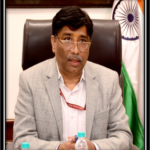
Horticulture Commissioner , Ministry of Agriculture & Farmers Welfare, Govt. of India, Krishi Bhawan, NewDelhi

Director, ICAR-IIHR, , Hesarraghatta, Lake Post, 560089, Bengaluru

Pr. Scientist, Division of Agricultural Physics, ICAR-IARI, New Delhi
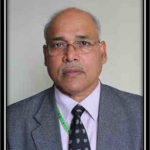
Vice Chancellor, N.D. University of Agriculture & Technology, Kumarganj,, Faizabad, 224 229, Uttar Pradesh

Director, ICAR, Directorate of Mushroom Research, Chambaghat, Solan, 173213, Himachal Pradesh, director.mushroom@icar.gov.in, directordmr@gmail.com
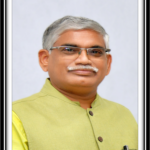
Vice Chancellor, Dr.Y.S.R. Horticultural University Venkataramannagudem – 534 101 West Godavari District, Andhra Pradesh

National Project Coordinator, Alliance of Bioversity International and CIAT - India Office, G-1, B-Block, NASC Complex, DPS Marg, Pusa Campus, New Delhi 110012

Vice-Chancellor, BC Agricultural University, West Bengal, India

Director, ICAR-Indian Institute of Vegetable Research, , Post Bag No.1, P.O.- Jakhini (Shahanshapur), Varanasi, 221305, Uttar Pradesh

Joint Director (Research), ICAR-IARI, New Delhi-110012

Director, ICAR-, National Research Centre of Orchids, Pakyong, 737106, Sikkim

Director, ICAR – Central Institute of Temperate Horticulture, Old Airport Road, Rangreth – 190007, Jammu & Kashmir
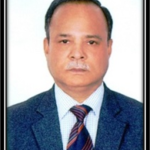
Head, Division of Fruits and Horticultural Technology, ICAR-IARI, New Delhi-110012

Principal Scientist, Division of Fruit Crops, ICAR-Indian Institute of Horticultural Research, Hesaraghatta Lake Post, Bengaluru-560089

Vice Chancellor, Dr. Yashwant Singh Parmar University of Horticulture & Forestry, Nauni, Solan, 173 230, Himachal Pradesh
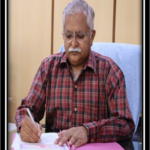
Director, ICAR-Directorate of Onion & Garlic Research, Rajgurunagar, Pune, Maharashtra

Vice Chancellor , Sri Karan Narendra Agriculture University, Jobner (Jaipur) Rajasthan, 303328

Professor & Head, Department of Floriculture & Landscape Architecture, Aspee College of Horticulture & Forestry, Navsari Agricultural University, Navsari, 396445

Director ICAR - National Research Centre on Litchi, Mushahri Block, Muzaffarpur – 842002, Bihar

Principal Scientist, Division of Vegetable Crops,

Director, ICAR-Central Institute for Sub-Tropical Horticulture, Rehmankhera, P.O. Kakori,\ Lucknow – 226101, Uttar Pradesh

Project Director, ICAR-DKMA, KAB-1, GOI, H. No. 10590 GF, Street No. 4, Pratap Nagar, , New Delhi , 110012

Vice-Chancellor,Bihar Agricultural University, Sabour, Bhagalpur, Bihar India- 813210

Director, ICAR-NRC for Banana, Thogamalai Road, Trichy, 620 102, Tamil Nadu

Director, ICAR- Central Potato Research Institute, Bemloe, Shimla, 171001, Himachal Pradesh

Director, ICAR, Central Institute for Arid Horticulture, , 10th Milestone, Sri Ganganagar Highway, Beechwal Industrial Area, Bikaner, 334006, Rajasthan

Director, Central Arid Zone Research Institute, CAZRI Road, Jodhpur - 342 003 (Rajasthan)
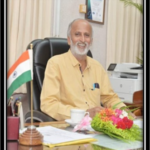
Director, ICAR-Central Plantation Crops Research Institute, Kudlu.P.O, Kasaragod,Kerala, 671124, India

Pr. Scientist, Division of Food Science & Post Harvest Technology, ICAR- Indian Agricultural Research Institute,New Delhi, 110 012, Delhi

Director, CAR-National Institute of Secondary Agriculture, Namkum , Ranchi, 834010

Director, ICAR-CTCRI, Sreekariyam.P.O, Thiruvananthapuram.
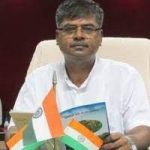
Ex-Director, ICAR- National Research Centre on Pomegranate,NH-65, Solapur Highway, Kegaon,Solapur, 413255, Maharashtra

ICAR-National Research Centre for Grapes P.B. No. 3, P.O. Manjari Farm, Solapur Road, Pune – 412307,Maharashtra, India

Director (Acting), Bagwani Bhawan, National Horticultural Research and Development Foundation, Plot no 47.Institutional Area,Pankha Road,Janakpuri,New Delhi-110075, drpkgupta11@gmail.com

Director, ICAR - National Research Centre on Seed Spices, Tabiji, Ajmer – 305206, Rajasthan

Director, Defence Research Laboratory(DRL), DRDO,Solmara Cantt, Tezpur-784001

Director and Chief Technology Officer at Mahyco Private Limited (MAHYCO), India

In-Charge, ICAR-CIAH-Central Horticultural Experiment Station,Vejalpur-389340, Panchmahals(Godhra), Gujarat

Director, ICAR-Indian Institute of Oil Palm Research, Pedavegi - 534 450. West Godavari Dist, Andhra Pradesh

CEO, RASI SEEDS, Gurgaon, Haryana, India

Asia Regional Director, International Potato Center (CIP)

Natural Resources and Agriculture Specialist, Asian Development Bank (ADB)

Head, Nursery Division, VNR Seeds, devesh.shukla@vnrnursery.in, devesh.shukla@vnrseeds.com

ICAR – Central Institute of Temperate Horticulture, Old Airport Road, Rangreth – 190007, Jammu & Kashmir

Sahyadri Farm, Gat No. 314/2/1, A/P Mohadi, Tal. Dindori, Nashik - 422207, Maharashtra, India

Founder Executive Director, North East Farm Sales Promotion

Former Director, CIMAP/CSIR, INDIA

Director, Defence Food Research Labora-tory (DFRL) Ministry of Defence, Siddarth Nagar, Mysore-570 011

CEO, FSSAI, FDA Bhawan, Kotla Marg, near Bal Bhavan, Mandi House, New Delhi, Delhi
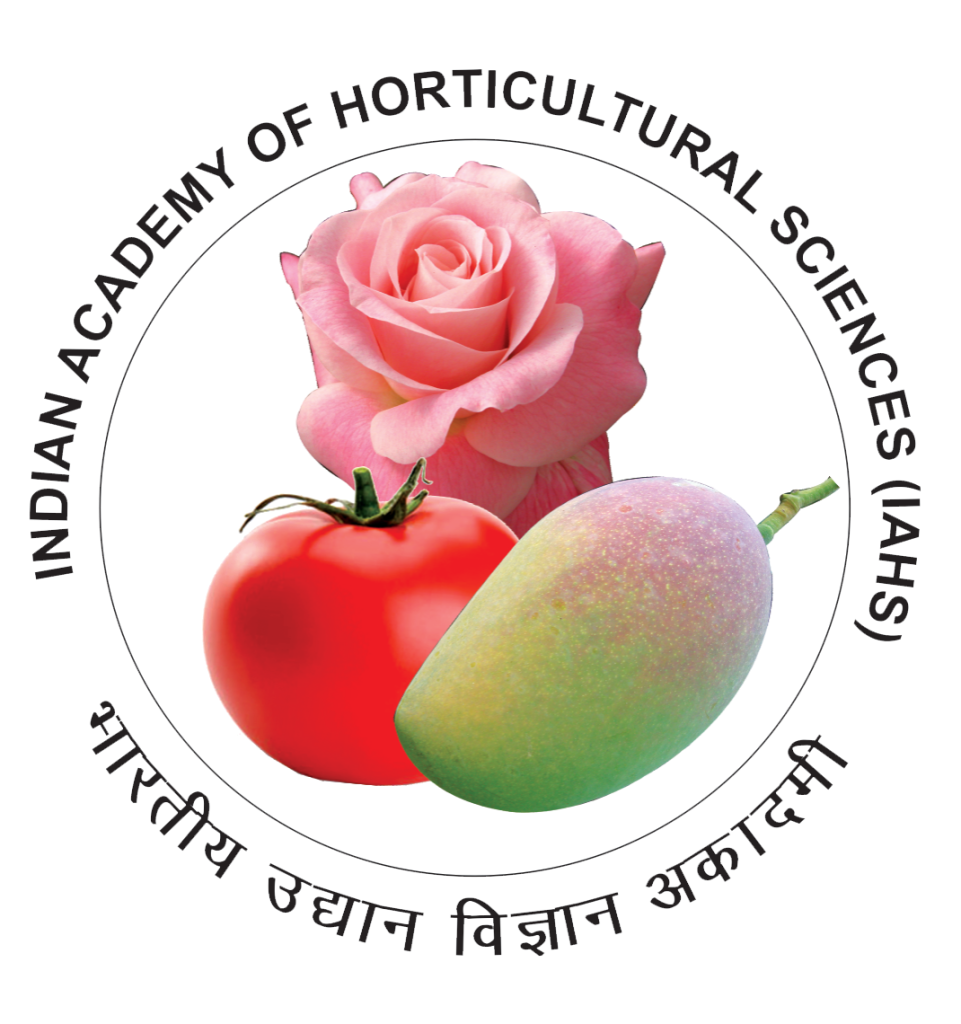
Copyright 2021, Confrico. All Rights Reserved.